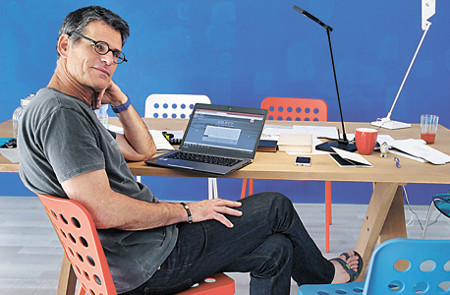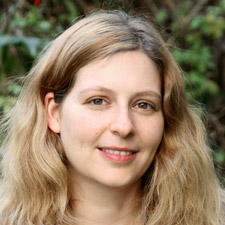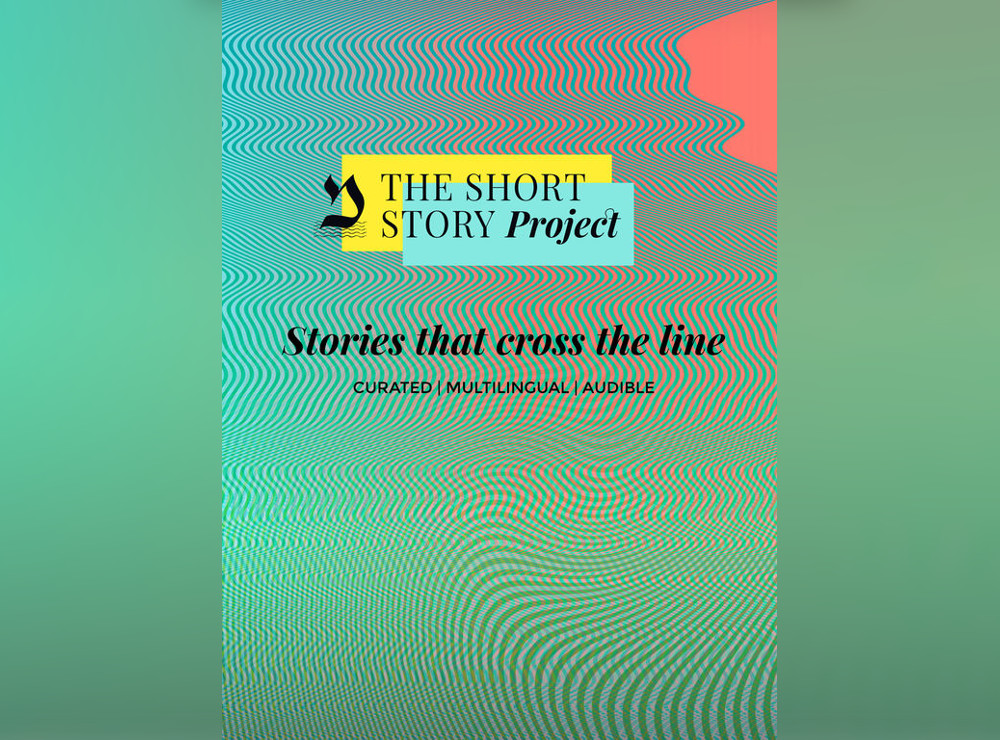We came across Maaboret: The Short Story Project last year when we were looking into exciting work taking place around the world. In combining international exchange with new translation and the possibilities for digital publishing, we were impressed. So we asked Maya Feldman, one of their Senior Editors, to tell us more.
ILS: Tell us about Maaboret: The Short Story Project.
MF: The Short Story Project is a non-profit digital venture dedicated to promoting short fiction across the world. Our mission is to advance short story literature by building an extensive cross boundaries community of short story readers. We believe that reading, as a transformative experience, explores the human condition and fosters a unique empathy, while creating a special understanding among people and serving as a bridge between cultures.
 We publish short stories from around the world in its original language and in translation into English, Hebrew and Spanish and very soon, German too. We publish contemporary fiction and classics and also children stories. All stories – text and audio - are available free for readers. some of them are chosen through a recommendation of a literary figure, and are published alongside a short text of recommendation by her or him.
We publish short stories from around the world in its original language and in translation into English, Hebrew and Spanish and very soon, German too. We publish contemporary fiction and classics and also children stories. All stories – text and audio - are available free for readers. some of them are chosen through a recommendation of a literary figure, and are published alongside a short text of recommendation by her or him.
The Short Story Project supports the direct links between writers and readers, translators and book people from across the globe. It allows free access to an ever-growing, international collection of short stories – both text and audio – accessible anywhere, anytime, on any device.
ILS: Maaboret translates from the Hebrew as Ferry. Your work is about sharing stories as a means to bridging cultures. What is it about short stories that you think is so adept at this?
MF: Reading so much short fiction from all over the world, I believe that a short literary work can serve as a window to a whole other culture. I've edited a translation of a Spanish story every week (chosen by our brilliant Spanish editor Adam Blumenthal who lives in Madrid) and I feel a whole new world has opened up to me. This is an experience I hope we can create for the readers as well. I'm now working with our German editor in Berlin – Simon Lorsch, and I'm quite thrilled to read all the new German stories.
ILS: Who recommends stories for inclusion? How do you decide on them?
MF: Each one of us editors approach literary figures from around the world and ask them to choose a story they like. Something that they would like to see published – an old favorite, a new voice. Then we translate it, create an audio version and publish. If the story they chose is too weird or will definitely won't work in translation we kindly ask them to choose something else. Some of the stories we choose ourselves, as well.
ILS: You work across four languages – English, Spanish, Hebrew and soon to be German. Why these? And What next?
MF: Hebrew, because most of us are Israeli. Our funder and publisher, the writer Iftach Alony, is the live spirit of the project, is Israeli and our editorial board is based in Tel Aviv. English, because that’s the easiest and we all speak and read it. Spanish - because there's a huge and very active and exciting readership in the Spanish speaking world. And German – we feel we'll find readers there too. Our next efforts we hope will be into Arabic.

ILS: What does the digital enable that you couldn’t have done with traditional publishing?
MF: Oh! So much freedom! Endless free space, availability, direct and almost immediate contact with readers and writers, without the dependency on all the intermediators. I have worked in publishing for many years and am also a literary editor in an Israeli publishing house, and the internet is so much more vibrant and active than print. It's lighter. You can publish and then change, and fix, and replace. There are also so many other aspects to publishing a story – our amazing interface and the beautiful images that come with each story, that are made by our talented designer Ina Pardo. And for instance – the links. I adore the links. Instead of notes I put embedded hyperlinks in the stories, and it's so great. Now when I read fiction in print I really feel bad I don't have this feature.
About Maya Feldman

Maya Feldman is a senior editor of The Short Story Project. She also works as an editor in Am-Oved publishing house in Israel. She is from Tel Aviv, but currently lives in Berlin.







 We publish short stories from around the world in its original language and in translation into English, Hebrew and Spanish and very soon, German too. We publish contemporary fiction and classics and also children stories. All stories – text and audio - are available free for readers. some of them are chosen through a recommendation of a literary figure, and are published alongside a short text of recommendation by her or him.
We publish short stories from around the world in its original language and in translation into English, Hebrew and Spanish and very soon, German too. We publish contemporary fiction and classics and also children stories. All stories – text and audio - are available free for readers. some of them are chosen through a recommendation of a literary figure, and are published alongside a short text of recommendation by her or him.
